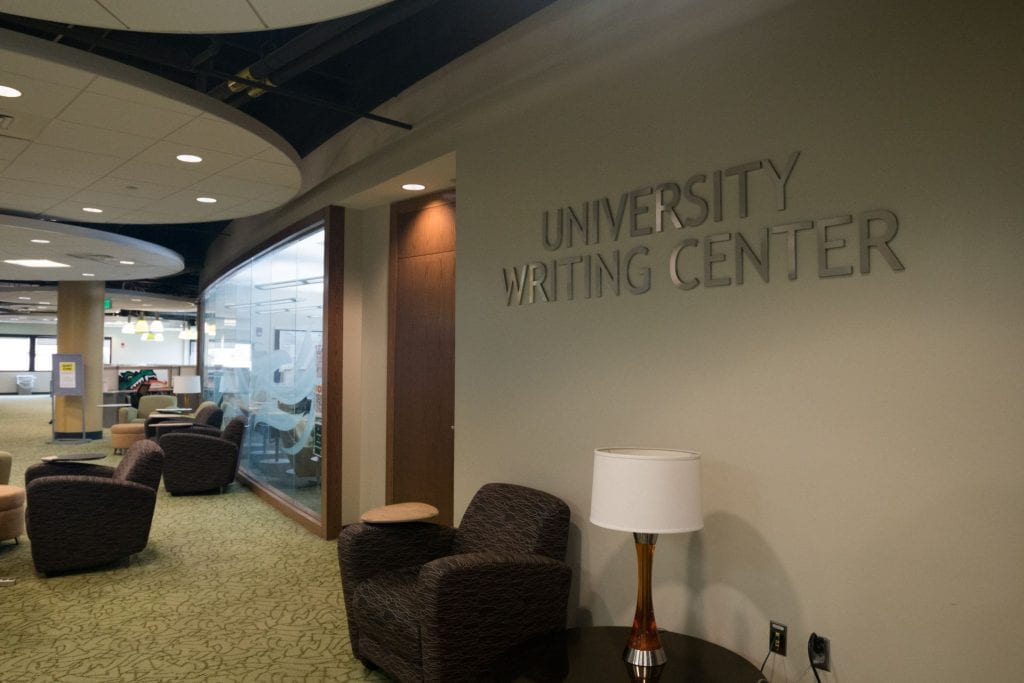
The simple words “peer review” is enough to inspire dread in students. They come to class biting their nails. They pass their papers around with warnings and apologies. However, the fear of feedback is unnecessary.
The opportunity to have a fellow student critique your work before it gets to the professor is invaluable. At UAB, we have the University Writing Center that offers face-to-face tutoring to undergraduates and graduates.
Students can schedule sessions for 30 or 60 minutes and bring papers at any stage, from drafts to finished products. The center currently offers tutoring from English graduate students.
However, there exists a myth that the Writing Center is meant for freshman students struggling in English Composition, or visiting the Writing Center is an admission of failure.
According to the 2016 UWC newsletter, 35 percent of those who visited the Writing Center were upperclassmen, and an additional 23 percent were graduate students. This leaves only 42 percent of the breakdown to freshman clients. The highest percentage of clients by category, therefore, were upperclassmen students.
Making an appointment with the Writing Center does not indicate an acceptance of failure but rather an investment in success.
No matter your stage of the writing process, your major or your class standing, I see the following four points as the most important results of visiting the UWC.
Verbalizing Thoughts
By speaking your thoughts out of your head, you can untangle them. A great way to identify flaws with your argument is to explain your thoughts to another person. In that situation, you are forced to think about your peer’s immediate reaction to your thoughts, which helps you evaluate your argument more critically.
Also, by hearing your thoughts spoken out loud, you may draw connections that you had not realized when your argument sat stagnant on a map in your head. Verbalizing thoughts transforms them from the abstract to the real.
Having a graduate student who has previously been in your undergrad shoes listen, critique and support your ideas helps foster awareness of public reaction to your work.
Receiving Peer Feedback
The tutors at the Writing Center have been in your shoes; let them offer you wisdom that they wish they had been offered. Similarly to how you can identify flaws or links in your argument when you speak it aloud, peers can find flaws or links in your argument that you had not seen.
Seeking feedback means that the student wants to improve the final product. While there is a considerable number of freshman students who visit the Writing Center, this more reflects on those students’ desires to understand the writing process and how to succeed in a new writing environment.
Seeking feedback requires confidence. One student indicated that, “it was great to come and talk to someone about my ideas and get great tips, advice and comments.”
Collaboration
The workplace in which many Professional Writing students will find themselves will likely be a collaborative environment. Bouncing ideas off one another allows a company to produce quality content, products or services. Practicing collaboration by visiting the Writing Center provides students with a better idea of what they will encounter in the workplace.
Writing feels more personal than other schoolwork, so students may be afraid to have their work critiqued. However, the tutor wants the student to succeed. When teachers give grades for papers and deduct points for errors, it may seem like punishment for poor writing. This misconception is often carried over to tutor-student scenario, causing the student to feel that the tutor is picking apart their work and looking for failure. However, the entire process at the UWC is a collaborative effort that improves not one specific piece but the entire writing process of the student.
Increased Confidence
Asking for help is a sign of strength, not weakness. Identifying a need for guidance demonstrates self-awareness, investment in individual potential, intellectual confidence and maturity.
Visiting the Writing Center may feel like admitting defeat, but nobody is above asking for help. Being able to ask questions means that a student has evaluated his or her writing, identified pitfalls and has decided that the piece deserves to be carried out to its full potential. Understanding the strengths of the piece and knowing that the student has taken the necessary steps to improve weaknesses allows the student to turn it in with confidence in the result.






